Agriculture is an integral part of the world’s economy, mainly for developing countries. It is the primary source of employment, income, and food, and these basic needs are fulfilled by agriculture all over the world.
SMR Irrigation provides all kinds of support for developing smart agriculture by offering SMR Tissue Culture Plants for disease free and high yield, High quality seedlings and grafted plants, Protected Cultivation for precision farming in greenhouses / polyhouses. Use of renewable resources like solar energy for irrigation & power generation, Control and Monitoring system for proper management of irrigation & fertigation systems.
Tissue Culture Raised Plants
Plant tissue culture is used widely for the micropropagation of crops in a short span of time in limited space under aseptic conditions on a nutrient agar medium.
Salient Features :
- Large scale production of exact copies of mother plant (true-to-type)
- All plants produced through tissue culture are uniform and free from diseases and pests ex-our hardening centre.
- Use of hi-tech cultivation practices culminates in 100% increase in yields when compared to conventional sucker planting (18-20 kg bunch as against 36-40 kg average).
- Use tissue culture plants coupled with drip irrigation results in bumper crop for the farmers (Potential to reach upto 50 kgs bunch)
- Savings in labour and fertilizer application employing hi-tech cultivation practices.
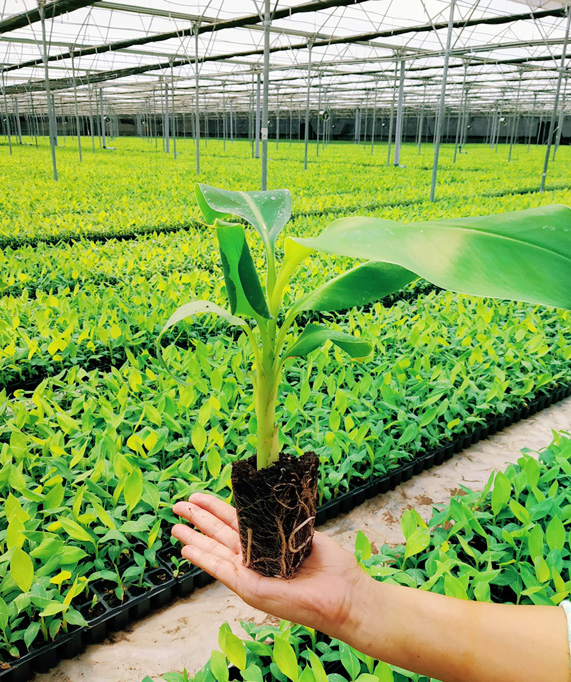
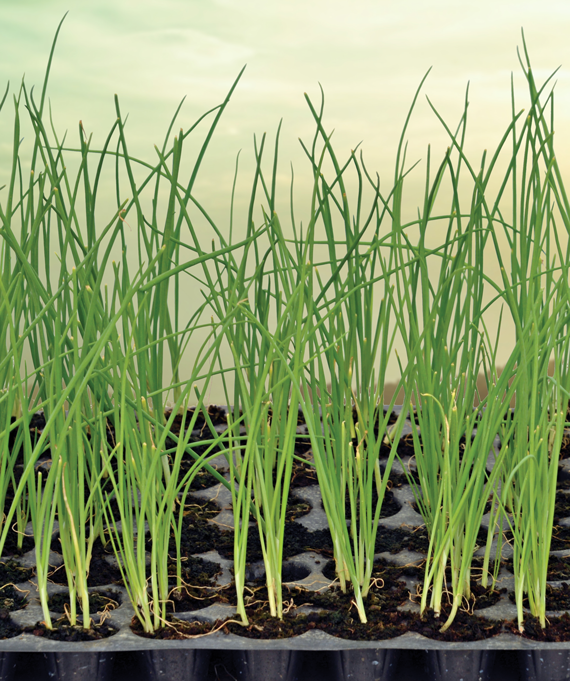
Seedlings
Elite seedlings of different crops are grown by our qualified staff using hi-tech methods that guarantee high farm yields. Nursery Management operations are closely monitored by a team of our dedicated scientists. The seedlings are grown in multi-cavity protrays filled with sterile soilless medium that rules out the possibility of incidence of any soil-borne diseases/pests. All seedlings are rigorously inspected by a qualified plant pathologist and only after such stringent checks, the seedlings are given to customers. For SMR, Quality is a way of life!
Grafted Plants
In modern horticulture, grafting is used to improve or strengthen plants’ resistance to certain diseases, to retain varietal characteristics, to adapt varieties to adverse soil or climatic conditions, to ensure pollination and many more reasons.
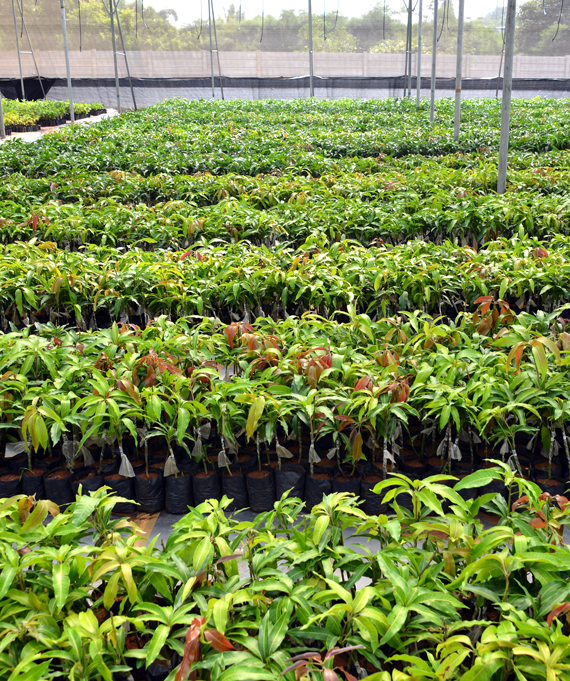
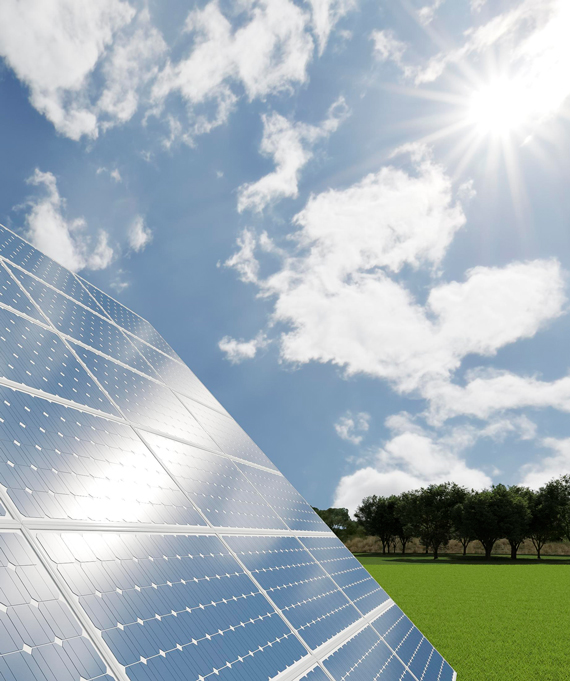
Solar Powered Pumping
Pumps require energy (electricity) for pumping water from the source to the farms. Electricity is often expensive and / or not available in farms that are remotely located. How do we address this issue?
SMR has a solution. It has developed solar pumps of different capacities ranging from 0.1hp to 50hp. The most popular model is 5hp which is used by farmers to irrigate their agricultural field. These are BLDC motors which are more efficient and work from 7am till 5pm. They work in diffuse radiation, also thereby providing 365 days of service.
AgroVoltaic Farming
In AgroVoltaic farming, transparent Solar Photovoltaic Modules are exclusively used as basic material where roof or glass fade in order to harvest the energy as well as to get farm yield from the same. It is well known that water, energy, and agriculture are three intrinsic elements used for food production worldwide. While many technologies have advanced these components separately, SMR has been in the forefront when it comes in terms of amalgamating all these three for the betterment of mankind.
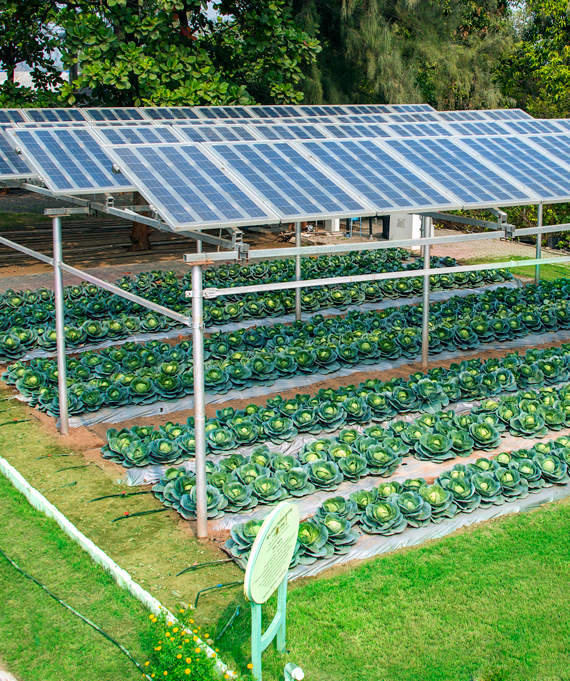
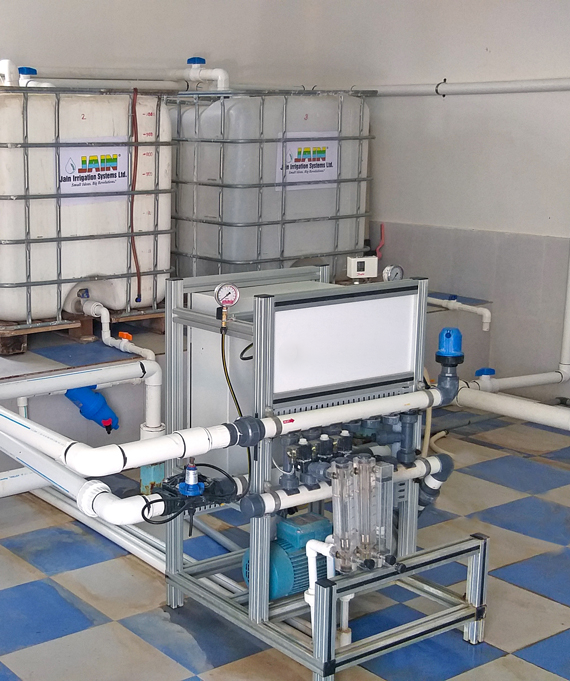
Fertigation Equipment
Fertigation is a method of fertilizer application in which fertilizer is incorporated within the irrigation water by the drip system, sprinkler system, pivot system. In this system fertilizer solution is distributed evenly in irrigation. For manual fertigation we can use Venturi, Fertilizer Tanks & fertigation pumps. Precision fertigation is also important in greenhouses / polyhouses where control and monitoring is key for success where we can use NutriCare and PreciMix fertigation machines with EC & pH control and monitoring system.
Control & Monitoring System
Growing plants need water, but the amounts of it differ depending on soil moisture levels. To measure such precision levels, farmers have either to go to the field and take regular manual tests – alternatively, or could use smart sensing technology, which is more accurate, convenient, and time efficient.
Control & Monitoring Systems are often optimised in order to have greater control over numerous factors of farming. This includes different kinds of systems like volume based system & sensor based system either in greenhouses for humidity, light, carbon dioxide levels, temperature, and nutrition and for open field agriculture nutrition management, field irrigation management.
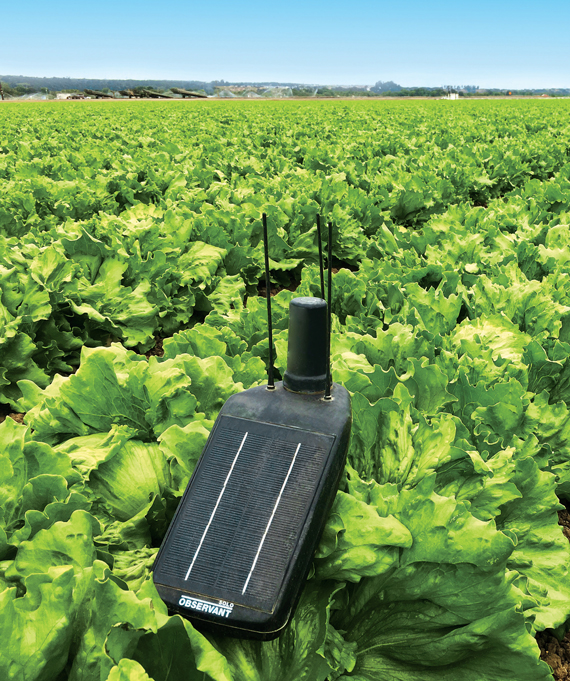
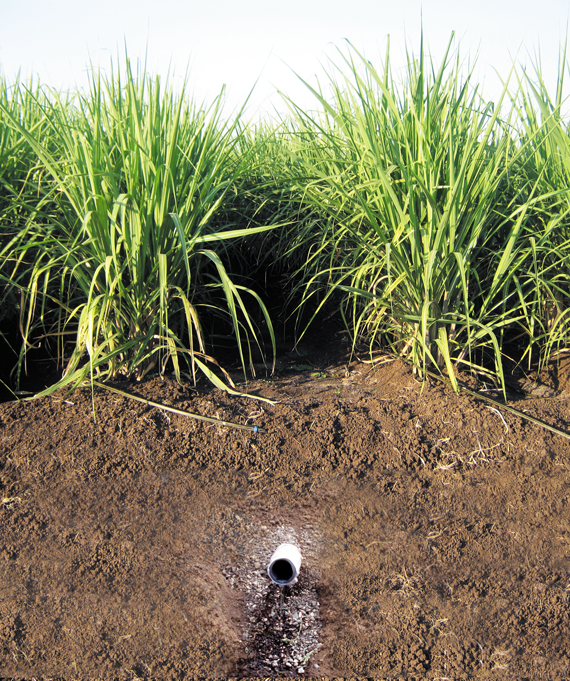
Sub-Soil Drainage
Sub soil drainage systems are used to collect leachate under land fill sites as well as used to control and direct underground water transport and to encourage proper surface water percolation and control water levels in agricultural fields to improve soil condition.
Hydroponics Systems
Hydroponics is the system of growing plants using essential nutrients in water without soil. This system is suitable for high value crops like leafy vegetables, herbs and spices.
Plant roots are suspended in static or flowing water fortified with nutrient solution. A film of nutrient solution is formed around the root zone to support the plant growth.
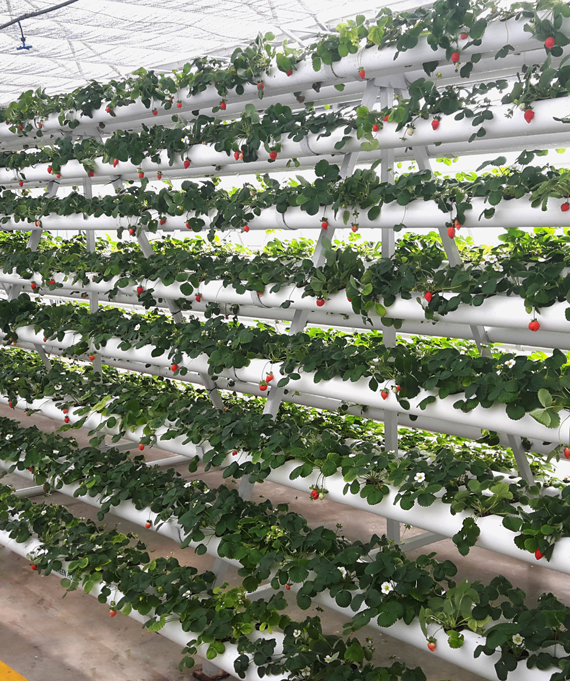
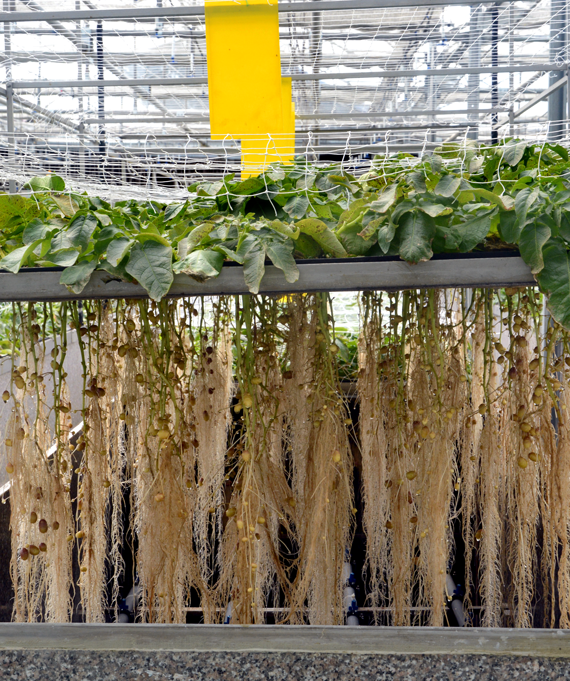
Aeroponics Systems
First time this method was invented by NASA to grow plants in space. Later Holland and Israel have taken R&D trials. In Bangladesh, SMR Irrigation has made the first commercial installation in Punjab. It is running successfully for the past three years.
Aeroponics is the process of growing plants in air or mist environment without the use of soil or any other growing medium. Water is used to transmit nutrients.
The basic principle of Aeroponics is to grow plants in suspended root system in protected environment. Water with required nutrients is supplied through mist sprays. Suitable for tubers crops, root crops and leafy vegetables.
Vertical Farming
Land is getting scarce by the day. The vertical farming uses soilless media or hydroponic technique. It uses space through multilayer and artificial light source.
Plant roots are suspended in static or flowing water having nutrient solution. The water is re-circulated through automated system.
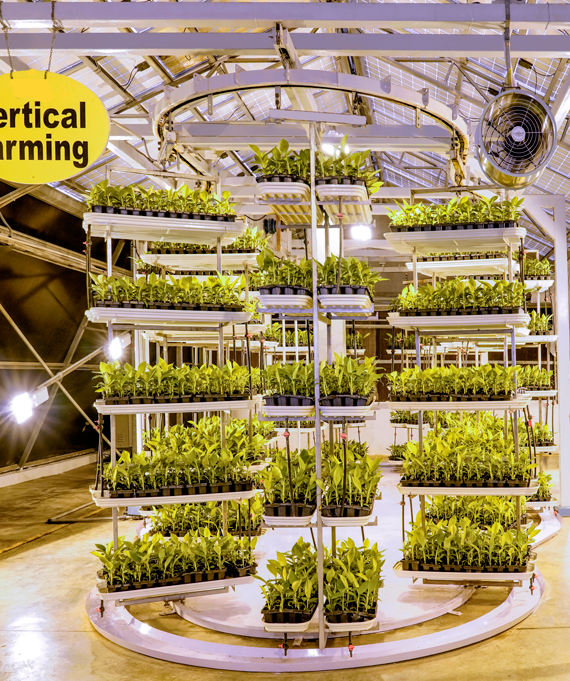
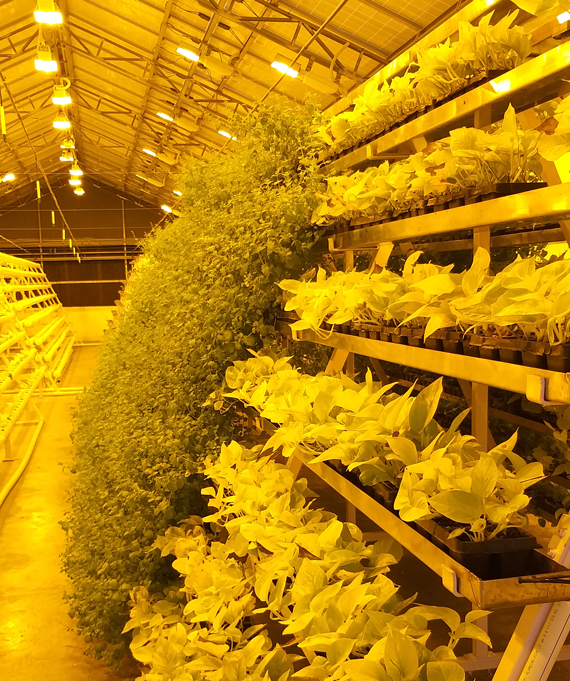
Urban & Indoor Farms
This method of raising crops is gaining popularity in recent years especially in big and advanced cities where arable land is not available. SMR has ventured into this activity to provide total solutions right from establishing such types of urban and indoor farms and also provide after-sales services. The indoor crops for which SMR can offer total consultancy include Tomato, Spinach, Cabbage, Cauliflower, lettuce, broccoli etc.,
Design & Consultancy Services
Proper system planning and design is essential to irrigation water management and requires the thoughtful consideration of many elements. Selecting a system must include management, water, soil, and crops. Irrigation practice will be designed in accordance with all federal, state and local laws and ordinances. Micro irrigation Systems in agriculture shall consist of acceptable pipe design and layout to distribute the water in a uniform manner for the intended life of the practice. Resource inventories, local conditions and the intended use will need to be assessed for the proposed Micro irrigation System design and location. Proper crop selection is also an important task based on the land topography, soil characteristics and respective climatic conditions.
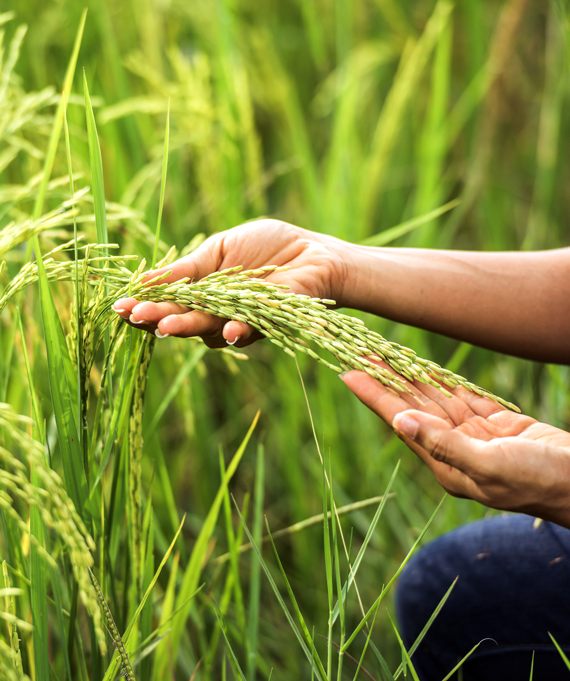
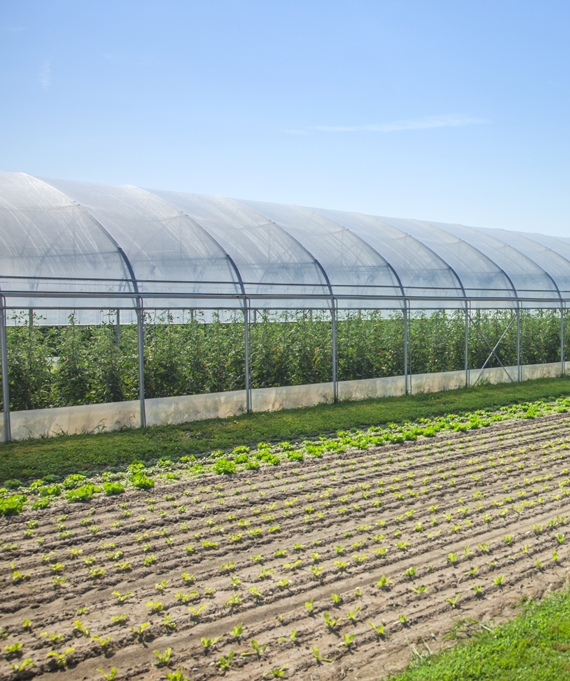
Climate Smart Agricultural Solutions
Climate-smart agricultural solutions are a combination of engineering, plant science, and smart greenhouse control technologies used to optimize plant growing systems, plant quality, and production efficiency.
The essence of a climate-smart agricultural solution involves growing produce within a closed ecosystem and managing numerous variables. The purpose behind this method is to reduce the threat of diseases and pests, maximize efficiency, increase sustainability and yield, and also to bring down the overall cost of operations. Automation techniques are often optimised in order to have greater control over numerous factors of farming. This includes applying automation techniques to effectively control humidity, light, carbon dioxide levels, temperature, and nutrition.
